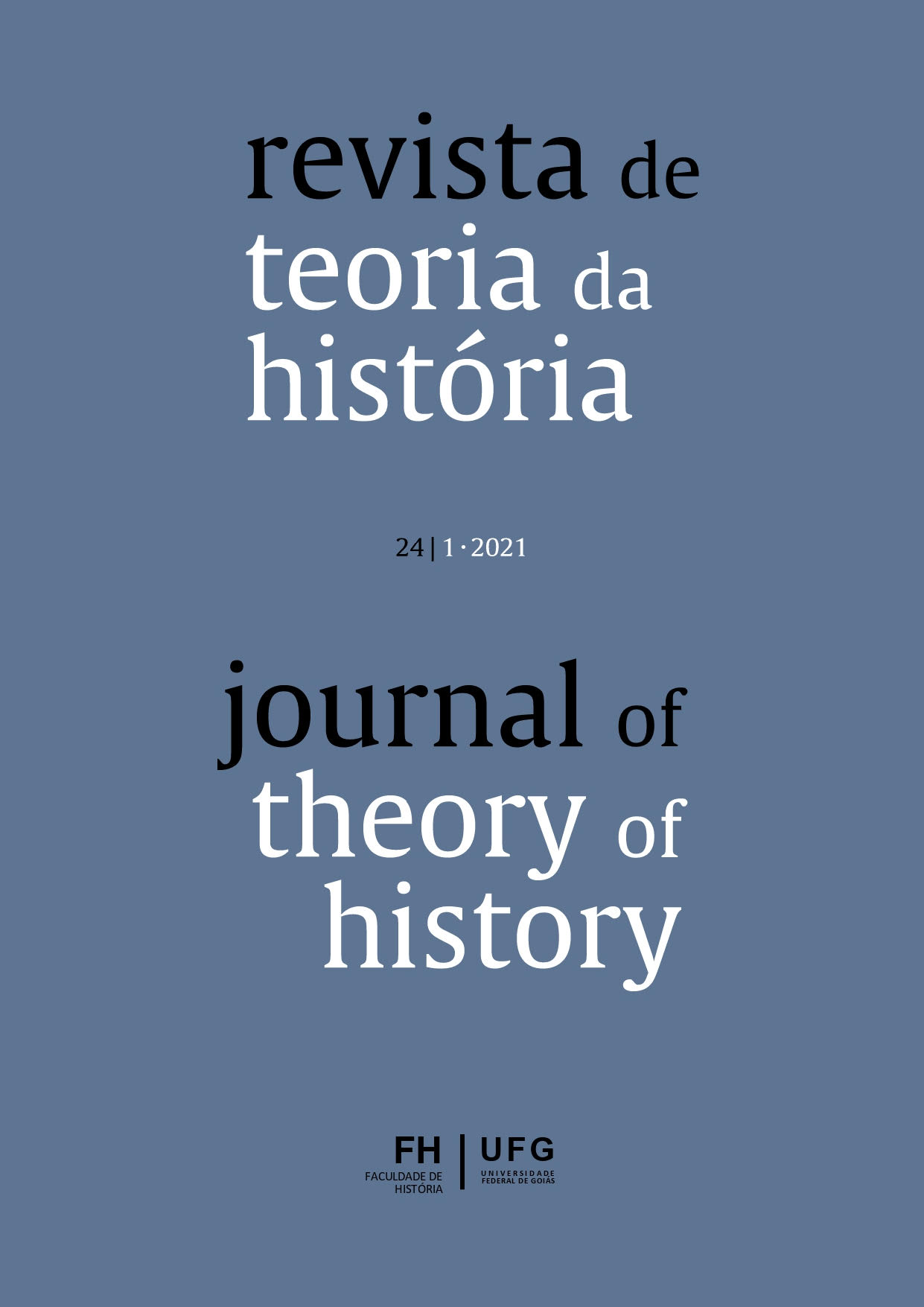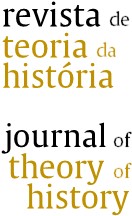Rebranded Philosophy of History
New Varieties of Discontinuity and the Spatialization of Historical Time
DOI:
https://doi.org/10.5216/rth.v24i1.67886Keywords:
philosophy of history, postnarrativism, discontinuityAbstract
This article focuses on the one of the many outcomes of the so-called rebranded philosophy of history, namely, the continuity-discontinuity issue. Eelco Runia’s, Noël Bonneuil’s and Paul A. Roth’s conceptions of historical time will be analyzed as representative of this subject in the landscape of the theory of history from 2010 on. The authors sampled not only provide the evidence that historical discontinuity remains alive as a theoretical and historiographical challenge, but they also disclose different arrays to think the relationship among past, present, and future, and historical transformation. The concepts of historical time analyzed recall Foucault’s discontinuously-base model of thinking historical time and add to it different varieties of historical discontinuity. Moreover, the continuity-discontinuity issue in the new backdrop involves operation of translating time into space (spatialization of time). As a result, the discontinuously-based model of historical time’s main characteristics will be summarized and its strength as a heuristic tool for further analyses of the concepts of historical time is outlined.
References
BEVERNAGE, Berber. Time, Presence, and Historical Injustice. History and Theory, Vol. 47, No. 2, pp. 149-167, 2008.
BEVERNAGE, Berber; ALMEIDA, Gisele I. de; DELANOTE, Broos; FROEYMAN, Anton; HUIJBERS, Patty; MIEROOP, Kenan Van de. Philosophy of History After 1945: A Bibliometric Study, History and Theory, Vol. 58, No. 3, pp. 406-436, 2019.
BLOCH, Marc. The Historian’s Craft. New York: Vintage Books, 1953.
BONNEUIL, Noël. The Mathematics of Time in History. History and Theory, Vol, 49, No.4, pp 28-46, 2010.
FILLION, Réal. Moving beyond Biopower: Hardt and Negri’s Post-Foucauldian Speculative Philosophy of History. History and Theory, Vol. 44, No. 4, 2005.
FOUCAULT, Michel. Lecture of 10 March 1976. Society Must Be Defended: Lectures at the Collège de France, 1975-1976. Translated by David Macey. New York: Picador, 2003.
FOUCAULT, Michel. Of Other Spaces (1967): Heterotopias. Diacritics, Vol. 16, pp. 22-27, 1986.
FOUCAULT, Michel. Réponse à une question. In: DEFERT, Daniel; EWALD, François; LEGRANGE, Jaques (orgs.). Michel Foucault: Dits et écrits I. 1954-1975. Paris: Gallimard, 2001.
GORMAN, Jonathan. The Limits of Historiographical Choice in Temporal Distinctions. In: LORENZ, Chris; BERVENAGE, Berber (orgs.). Breaking up Time: Negotiating the Borders between Present, Past and Future. Göttingen:
Vandenhoeck & Ruprecht, pp. 155-175, 2013, 155-175.
KASABOVA, Anita. Memory, memorials, and commemoration. History and Theory, Vol. 47, No. 3, pp. 331-350, 2008.
KLEINBERG, Ethan. Introduction: The New Metaphysics of Time. History and Theory, Virtual Issue 1, 2012.
KUUKKANEN, Jouni-Matti. Postnarrativist Philosophy of Historiography. New York: Palgrave Macmillan, 2015.
LORENZ, Chris Lorenz. History and Theory. In: SCHNEIDER, Axel; WOOLF, Daniel (eds.). The Oxford History of Historical Writing. Oxford: Oxford University Press, pp.13-35, 2011.
LORENZ, Chris. The Times They Are A-Chaging. On Time, Space and Periodization in History. In: CARRETERO, Mario. BERGER, Stefan; GREVER, Maria (orgs.). Palgrave Handbook of Research in Historical Culture and Education. London: Palgrave Macmillan, pp. 109-131, 2017.
PAUL, Herman. Key Issues in Historical Theory. Oxon, New York: Routledge, 2015.
PIETERS, Jurgen. New Historicism: Postmodern Historiography between Narrativism and Heterology. History and Theory, Vol. 34, No. 1, 2000.
RANGEL, M. de M.; DE ARAUJO, V. L. Apresentação - Teoria e história da historiografia: do giro linguístico ao giro ético-político. História da Historiografia: International Journal of Theory and History of Historiography, Vol. 8, No. 17, pp.
-332, 2015.
REVEL, Judith. Discontinuité de la pensée ou pense du discontinu? Foucault, une pensée du discontinu. Paris: Mille et Une Nuits, 2010.
ROTH, Paul A. The Pasts. History and Theory. Vol. 51, No. 3, pp. 313-339, 2012.
RUNIA, Eelco. Presence. History and Theory, Vol. 45, No. 1, pp. 1-29, 2006.
SIMON, Z. B; KUUKKANEN, J-M. Introduction: Assessing Narrativism. History and Theory, Vol. 54, No. 2, pp. 153-161, 2015.
SIMON, Zoltán B. The Transformation of Historical Time: Processual and Evental Temporalities. In: TAMM, Marek; OLIVIER, Laurent (org). Rethinking Historical Time: New Approaches to Presentism. London/New York: Bloomsbury Publishing,
pp. 71-84, 2019a.
SIMON, Zoltán B. Do Theorists of History Have a Theory of History? Reflections on a Non-Discipline. História da Historiografia: International Journal of Theory and History of Historiography, Vol. 12, No. 29, pp. 53-68, 2019b.
Downloads
Published
How to Cite
Issue
Section
License
Copyright (c) 2021 rth |

This work is licensed under a Creative Commons Attribution-NonCommercial-NoDerivatives 4.0 International License.
The journal publishes only and exclusively original manuscripts. All rights reserved.
Licensed under a Creative Commons Attribution-NonCommercial-NoDerivatives 4.0 International License



